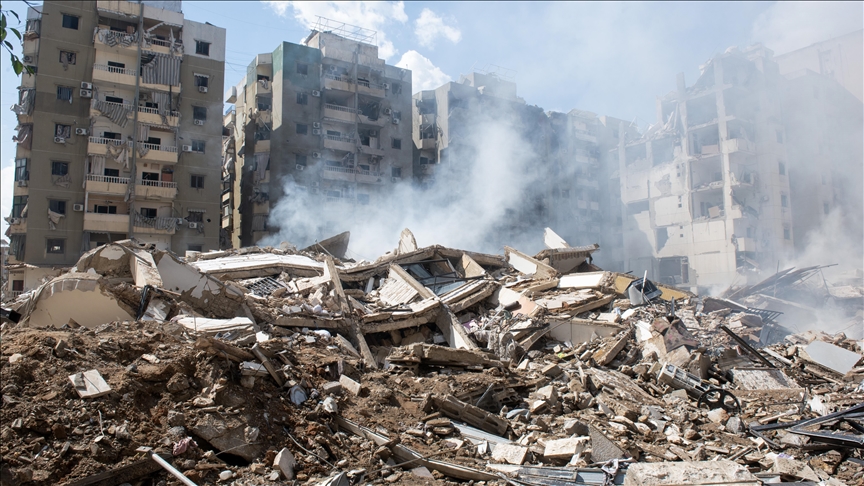EU reiterates demand for immediate Hezbollah-Israeli cease-fire
Immediate cease-fire across the region needed, says EU foreign policy chief

ATHENS
The European Union condemned a missile attack by Iran against Israel on Tuesday, warning that any retaliation risks causing the situation in the region to spiral out of control.
"The dangerous cycle of attacks and retaliation risks spiraling out of control. An immediate cease-fire across the region is needed," EU foreign policy chief Josep Borrell wrote on X.
German Foreign Minister Annalena Baerbock also condemned the attack “in the strongest possible terms” in a post on X.
“We have urgently warned Iran about this dangerous escalation. Iran must stop the attack immediately. It is driving the region further to the brink of the abyss,” she said.
Austrian Chancellor Karl Nehammer claimed that Israeli civilians were targeted in the attack.
“We demand Iran to immediately cease hostilities against the State of Israel and fully support Israel’s right to defend itself,” he said.
Belgium repeated its call for immediate de-escalation in the region, condemning the attack.
“An immediate cease-fire and the release of the hostages is necessary. Resuming peace talks is urgent. We call on all leaders to take their responsibilities,” said Foreign Minister Hadja Lahbib on X.
Bulgaria also condemned the attack and expressed support for Israel.
“We strongly condemn the ongoing Iranian missile attacks on Israel and stand for regional stability and the security of the State of Israel,” the Foreign Ministry wrote on X.
Romania said that “Israel has the right to defend itself and its citizens against these attacks,” in a post by its Foreign Ministry on X
Greece’s Foreign Ministry condemned the attack, saying “this is a serious escalation and increases the threat to regional security. Greece stands by the people of Israel and their right to live with security.”
In a brief post on X, Czech Republic Prime Minister Petr Fiala said: “We stand with Israel! As always.”
Hungarian Prime Minister Viktor Orban said: "We pray for the safety of the Israeli people in these dark hours."
Iran fired hundreds of ballistic missiles at Israel late Tuesday amid heightened tensions between the two regional arch-rivals.
Iran’s Islamic Revolutionary Guard Corps (IRGC) said the attack was in response to Israel’s assassinations of Hamas leader Ismail Haniyeh, Hezbollah leader Hassan Nasrallah and IRGC Commander Abbas Nilforoshan.
Haniyeh was assassinated in Tehran in July. Nasrallah was assassinated in Beirut on Friday along with Nilforoshan.
The IRGC warned that if Israel responds to the missile barrage, it will face more “crushing attacks.”
It said the attack was being carried out with the support of the army and the Defense Ministry.
Iran's UN mission later issued a statement saying the missile attack was "Iran's legal, rational and legitimate response" to the killings.
Tensions have been running high between Tehran and Tel Aviv since the assassination of Haniyeh in the Iranian capital on July 31. Iran blamed Israel and vowed a stern response.
The assassination of Nasrallah, a key ally of Iran, in an Israeli airstrike in a southern suburb of Beirut was followed by strong condemnation from Iran’s top leadership.
Following Iran’s missile attack, US National Security Advisor Jake Sullivan said they appear to have been ineffective. The US had vowed to help protect Israel from Iranian missiles.








